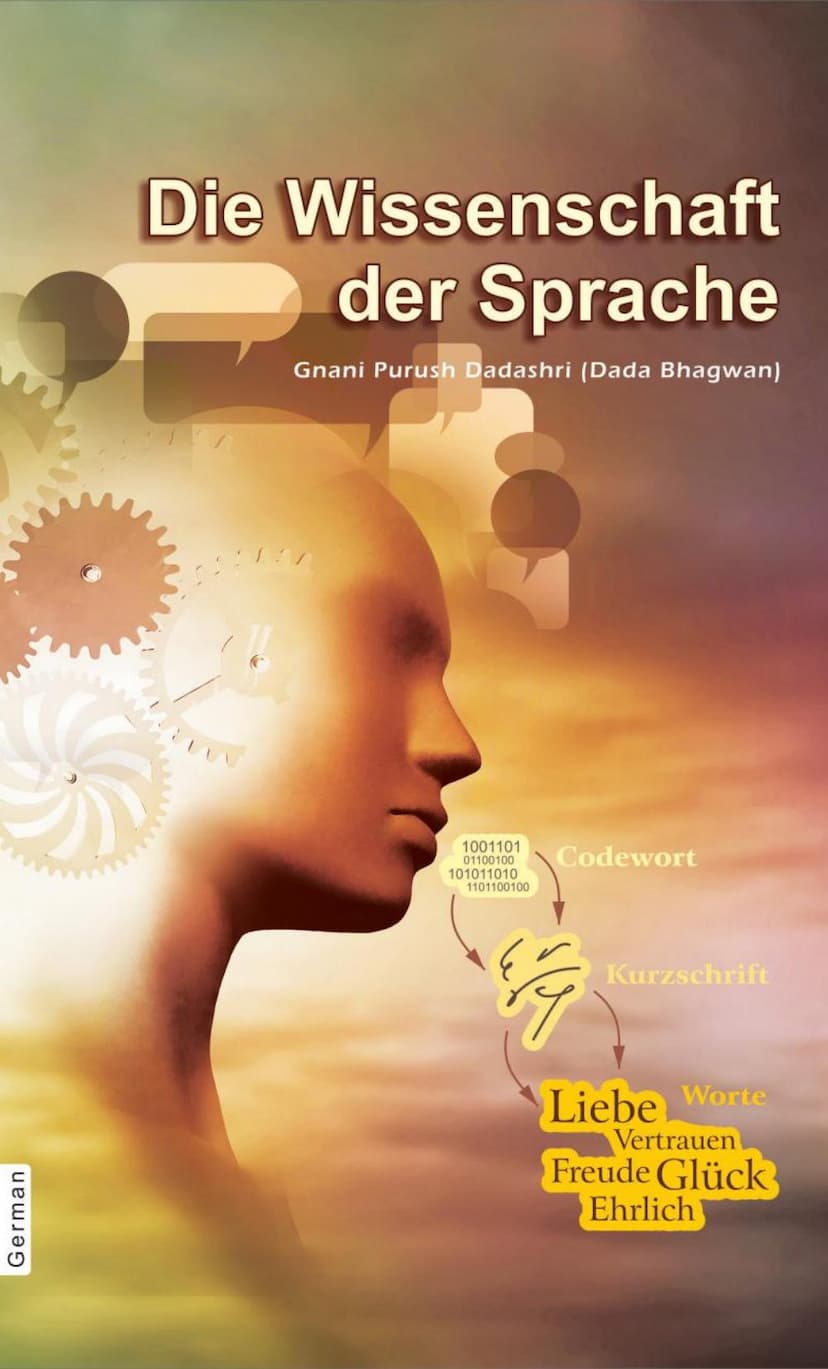Science Of Speech
Added to library: September 2, 2025

Summary
Here's a comprehensive summary of the Jain text "Science of Speech" by Dada Bhagwan, based on the provided pages:
Overall Theme:
The "Science of Speech" is a compilation of discourses by Gnani Purush Dadashri (Dada Bhagwan), a Self-realized spiritual master. The book focuses on the profound impact of speech on our lives, our interactions, and our spiritual progress. It offers a scientific and practical approach to understanding and mastering the use of language, not just for worldly interactions but also for achieving self-realization and liberation.
Core Teachings and Concepts:
-
The True Nature of Speech:
- Recorded Band: Dada Bhagwan emphasizes that speech is like a "recorded tape" that plays automatically. Our words are not truly "owned" by us in the way we think. They are an automatic playback of past actions, tendencies, and underlying intentions.
- Vyavasthit: Everything that happens, including our speech, is governed by Vyavasthit (a complex interplay of conditional circumstances). We are not the ultimate doer.
- Non-Self Nature: Speech, and indeed all external and internal phenomena, belongs to the "non-self" complex (Prakruti) and is controlled by an external power or Vyavasthit. Understanding this helps one remain detached and unaffected.
-
Impact and Consequences of Speech:
- Hurtful Speech: Harsh, critical, or mocking language is highly damaging, both to the listener and the speaker. It creates deep, lasting scars, binds negative karma (Paap), and creates obstacles to spiritual progress.
- Harmful Words: Words have immense power. Even seemingly casual negative words can cause significant damage, affecting health and creating karmic repercussions for many lifetimes.
- Karma Binding: Karma is bound not by the action itself but by the underlying intention and the conviction of being the "doer." If you believe "I am doing this," karma is bound. If you know "I am not the doer," karma is not bound.
- The Power of Words: Words are the foundation of the world and its conflicts. Kind words can reconcile, while harsh words can shatter inner peace.
-
Principles for Right Speech:
- Kindness and Positivity: Speak kindly and positively. Avoid speaking negatively about anyone, even when alone.
- Truthfulness with Discretion: Truth should be beneficial, concise, pleasant, and true (Heet-Mitta-Priya-Satya). Simply stating the bare truth can be harmful if not delivered with compassion and consideration.
- Avoiding Criticism and Blame: Criticizing others (Tikka) or speaking ill of them (Ninda) creates significant obstacles to self-realization. Even the slightest criticism creates a veil over one's Gnan (spiritual knowledge).
- Pratikraman: The key practice for cleansing oneself of mistakes related to speech (and other actions) is Pratikraman. It involves recognizing the error, regretting it sincerely, asking for forgiveness (from the Self within the other person and from Dada Bhagwan), and resolving not to repeat it. This practice is essential for dissolving negative karma and clearing obstacles.
- Molding Speech: To improve one's speech, one should practice speaking positively, avoid harshness, and be aware of the impact of their words. Visualizing Dada Bhagwan on one's vocal cords can help refine speech.
- Speaking with Love and Respect: When correcting or advising others, especially children, it should be done with love, explanation, and humility, rather than with authority or criticism, which can provoke defensiveness and further errors.
- The Role of Intent: The intention behind words is paramount. Lies told with good intentions for others are complex in their karmic effect, but the act of lying itself is still considered wrong and requires Pratikraman.
-
Understanding and Handling Conflict:
- Equanimity: When faced with hurtful language, one should remain detached and recognize that the other person is merely an instrument (Nimit) for settling past karma. Arguing with the instrument creates new karmic accounts.
- Observing: The liberated being (Gnani) observes their speech and the speech of others without getting involved or being affected. This detached observation is a path to Keval Gnan (Absolute Knowledge).
- No Interference: Interfering in the speech or actions of others without being asked is considered ego-driven (Atikraman).
- Acceptance: Accept situations and the speech of others as Vyavasthit. Do not seek justification or try to force your way.
-
The Role of the Gnani Purush:
- Transmission of Knowledge: Gnani Purush Dada Bhagwan transmitted the knowledge of Akram Vignan (the stepless path to Self-realization) through a scientific process called Gnan Vidhi, which could grant self-realization in just a few hours.
- Guidance: The Gnani's words are meant to guide seekers towards liberation. Their language is pure, beneficial, and does not hurt any living being.
- Inner Transformation: The teachings of the Gnani, when understood and applied, lead to inner transformation, enabling one to handle life's interactions with equanimity and clarity.
-
Specific Concepts Introduced:
- Akram Vignan: A stepless, shortcut path to Self-realization.
- Gnan Vidhi: The scientific process of imparting self-knowledge.
- Pratikraman: The core practice of self-purification.
- Vyavasthit: The science of conditional circumstances governing all events.
- Nimit: An instrument through which karma unfolds.
- Atikraman: A transgression or mistake, especially through thought, speech, or action.
- Sheelvan: A person of high moral purity whose speech and behavior do not harm others.
- Syadvaad: A language that does not hurt any living being.
Key Takeaway:
The "Science of Speech" teaches that mastering our speech is a crucial aspect of spiritual growth. By understanding the scientific principles behind language, practicing Pratikraman, and adopting a detached, positive, and loving approach to communication, one can resolve conflicts, purify their karma, and ultimately achieve Self-realization and liberation. The emphasis is on transforming one's inner intentions and understanding the true nature of reality, rather than just suppressing outward speech.